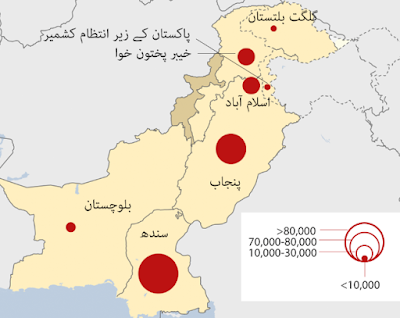The role of education from the perspective of Human Development
Economic growth alone does not automatically translate into human development progress, GDP is not enough since the true wealth of a country is in its people. In 1990, the United Nations Development Program (UNDP) published its first Human Development Report, which introduced the Human Development Index (HDI). According to the HDI, the development of a nation should be measured not only on the basis of national revenue, as was customary in the past, but also taking into account other variables related to the social quality of individual existence, such as the expectation of life and literacy rate, multidimensional inequality, gender disparity and extreme poverty.
In this sense, Human Development is
"the process of expanding the capacities of people who expand their options and opportunities."
Such definition associates development directly with the progress of life and human well-being, with the strengthening of capacities related to all the things that a person can be and do in his life fully and in all fields, with the freedom of to be able to live as we would like to do and with the possibility that all individuals are subjects and beneficiaries of development.
The well-being of people is much more than a question of money, since it consists of the possibility of carrying out the life projects that individuals have reason to choose and pursue through the cultivation of the capacities of which they are carriers. Hence the call for a new economy, an economy of human development, whose objective is the promotion of human well-being and growth, and which is committed to actively evaluating and pursuing alternative policies, insofar as they allow improving development.
In this sense, educational institutions must enhance human capacities. Paying attention to people's ability to do. The substantial objective of this approach is to improve the quality of life of each one defined based on their abilities. This is how students must acquire the ability to combine potentiality, starting from the cognitive, emotional resources and the available values (knowledge, knowing how to be, knowing how to do, knowing how to feel) to carry out not only a controllable performance but also demonstrate intentionality. towards the development of objectives that may be their own and of the organization itself. This practical action requires being able to read contexts (they are also evolving) that only a lasting experience can allow the subject. This is how one thinks and reflects from experience, in a continuous dynamic work of understanding. It is also vital to generate educational processes focused on the integral formation of the person, on critical judgment, on the ability to think and do, on mental openness, on dignity and on respect for democratic rights.
The valorization of people, thanks to the development of training capital, may be the first step in a process that leads to obtaining "substantial freedoms", that is, as Amartya Sen (2000) repeats, a freedom that implies the ability to transform goods , the resources available in freedom to pursue their goals, to promote their goals, to put into practice alternative lifestyles, to plan their lives according to how much value they have for themselves). It will depend on whether this potential is developed in each person so that they can achieve it or not. This is how we ask ourselves what are the opportunities for each human being in the society in which they live?
The philosopher Martha Nussbaum (2010) presents the list of capacities that includes the following ten dimensions
Life:
Each individual must have the possibility to live to the end a human condition of life of normal duration, not to die prematurely and not to be in conditions of external threat to their security.
Physical health: enjoy good health, enjoy adequate nutrition, be able to reproduce and have adequate residential conditions.
Physical integrity:
being able to move freely from one place to another, being protected against sexual assaults, abuse (particularly when children are older) and domestic violence; enjoy sexual pleasure and ability to choose in reproductive functions.
Senses, imagination and thought:
being able to use the senses to imagine, reason and above all think in a human way, that is, in contexts where it is possible to access education and knowledge. Use imagination and thought for the purpose of self-expression. Being able to develop autonomous decisions, of a religious, literary, and artistic nature. To be able to go in search of the ultimate meaning of existence in an autonomous way. Have pleasant experiences and avoid forms of useless pain.
Feelings:
being able to develop feelings of affection for things and people. Being able to develop forms of support for such capacities through associative forms.
Practical reason: Being able to form a conception of what is right and wrong, engaging in a critical reflection on how to plan its existence, anchoring such capacity to the need to protect your freedom of conscience.
Belonging:
being able to live with other human beings, and engage in forms of social interaction, exercising empathy and compassion; be capable of justice and friendship. Protect institutions that are at the base of the defense of those forms of membership. Protect freedom of speech and of political association. To be able to be treated as a worthy person, without incurring self-humiliation. Be protected from discrimination based on ethnicity, sex, sexual orientation, and religion, caste, national origin. At work, being able to work in a manner worthy of a human being, establishing a relationship of mutual recognition with other workers.
Other species: living in relation to animals and plants and the world of nature, being able to take care of it.
Game:
being able to laugh, play and enjoy recreational activities.
Control of the environment itself: participate in the political decisions that govern one's life and enjoy the guarantees of freedom of speech and association. To have the right to the possession of land and mobile property in terms of concrete opportunities, to look for work, to be protected from arrests and requisitions. Enjoy property rights.
The goal of a just society should be the realization of the equal capabilities of its members. The consequence is that the objective that must be maximized is not profit: it is not just a matter of redistributing (although primary) goods, but of activating the capacities to use those goods, to transform them into a “standard” of living (Nussbaum, 2002 ). So, we must ask ourselves, "how to act through education to contrast inequalities?" Can you think of education as a guarantee of social inclusion?
In short, Giuditta Alessandrini (2014) states that some basic conditions can be evidenced that can constitute a series of recommendations:
- The demand for a new development paradigm that puts not only the economic-productivist dimension at the center but the anthropological question (that is, the well-being of individuals, their happiness and the development of their potentialities).
- The overcoming of economic individualism centered on instrumental rationality, for a broadening of the horizons centered on the value of the dignity of the individual.
- The requirement to distinguish training, paying attention not only to the conditions of employability of people but also and above all, to opportunities to develop the potential of each one.
- The approach to a broader vision of the idea of innovation (Costa, 2011), not only in technical-functionalist terms but as a "participated social dimension".
- The requirement to focus the idea of social responsibility as the only "axis" around which a shared and effective process of "growth" can take root.





Comments
Post a Comment